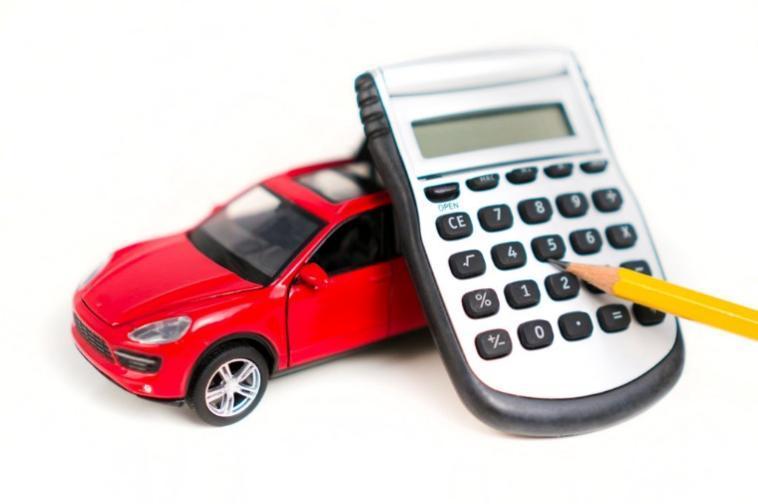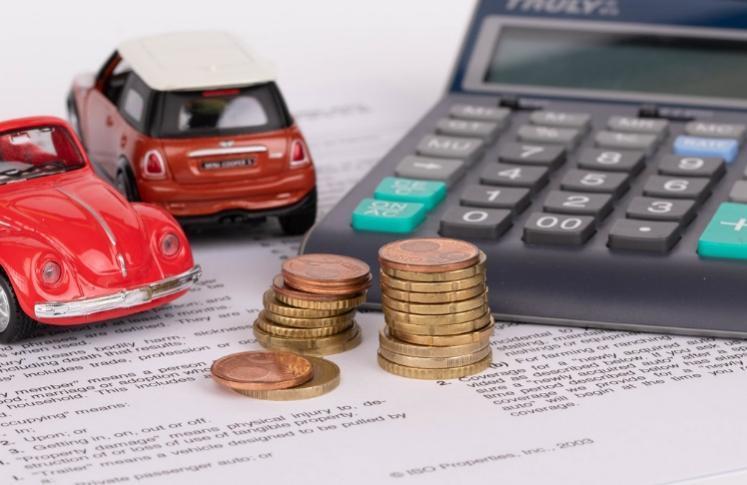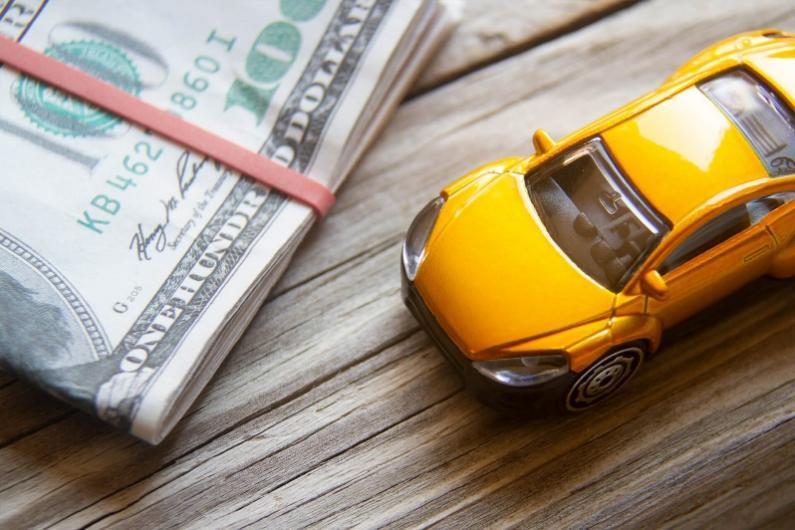
Are you looking to purchase a new car? Maintaining a vehicle comes with a lot of expenses. Many car owners are familiar with their vehicle's purchase price and the cost of petrol. However, keeping track of the annual car maintenance costs that come with car ownership can be difficult.
With this helpful guide, you can finally get an answer to the question, "how much does it cost to run a car?" We walk you through all associated car ownership costs.
It's natural to wonder how much to spend on a car and what the typical running cost of a vehicle in the UK is when you first consider purchasing. Here's where Carplus, the UK's leading car finance company, comes in.
Consult Carplus immediately to get professional guidance on car finance and other car-related concerns!
Find car finance deals with the best rates!
My monthly budget is
What's the average cost of running a car in the UK?

Annual costs for keeping a car on the road in the UK are above £3,000. In addition to the initial investment, yearly car maintenance and repairs cost an estimated £273, annual insurance premiums are £484, and petrol or diesel costs an estimated £1,435. Additional yearly costs of £259 are incurred for each vehicle for factors like road tax, parking, driving on toll roads, car clubs, fines, and other miscellaneous maintenance.
| Purchase/Depreciation per year | £1,104 |
| Car Insurance | £484 |
| Motor vehicle road tax | £141 |
| Petrol and Diesel | £1,435 |
| Parking, tolls, and permits (excluding motoring fines) | £44 |
| Motoring fines (based on national averages) | £4 |
| Repairs and Servicing | £273 |
| Garage rent, other car costs (excluding fines), car washing, etc. | £31 |
| Anti-freeze, battery water, cleaning materials | £9 |
| Motoring organisation subscription (e.g., AA and RAC) | £18 |
| Annual running costs for a car | £3,543 |
|---|
Types Of driving costs

There are two types of driving costs which are explained in detail below.
Running Costs
The daily expenses for actually utilising the car are referred to as "running costs." This includes fuel and servicing.
Fuel
The following four parameters influence your fuel cost per mile:
- Fuel cost per litre
- Fuel type
- Your car's performance (fuel consumption)
- Your driving style
Diesel costs more than petrol, but you can travel further on each gallon. But the longer it takes for you to recoup the additional cost of purchasing a diesel car in the first place, the greater the price disparity. Diesel will be more cost-effective than petrol if you drive many miles.
How to compute the cost of fuel per mile?
Price per mile (pence) = Litres x Fuel Price / Miles
Cost per mile x Average Mileage / 100 = Annual Car Running Cost
Tyre replacement costs
A car might run through an entire set of new tyres in four years. Include the old tyres' valve, balance, and disposal when estimating the replacement cost. Because branded dealerships will charge more, comparing prices on tyres can also help you save money.
Other replacements, including windscreen wiper blades, should also be considered.
How to calculate running costs for replacement parts
Annual car running costs = total of all car purchases
Cost per mile (pence) = Total cost x 100 annual miles driven by car
Service and MOT costs
Car owners need to include the cost of an MOT in their calculations. Every car needs an annual MOT if it is older than three years. This is a necessary legal obligation to keep your vehicle safe to drive.
Although getting your car serviced is not legally compulsory, it is highly advisable. A service can increase your car's efficiency while also identifying and addressing minor issues before they become more severe and expensive.
How to determine the cost of wear and tear
Annual running costs = annual service bill
Cost per mile = service bill x 100 annual miles driven.
Labour and Replacement Part Costs
Garages can add labour costs to cover routine servicing and part replacement. The cost of labour varies significantly by brand and location within the nation.
Under normal driving conditions, you may need to replace your car's brake pads, oil, filters, bulbs, and windscreen wipers regularly. But occasionally, you might need to swap out a major component, like the exhaust.
How to calculate labour and parts running costs
Annual car running costs = total of all car items purchases
Cost per mile (pence) = total price / annual mileage multiplied by 100
Parking and toll costs
Where you reside and how you drive your car are two significant factors determining this. Parking in city car parks may cost a few pounds here and there. However, if you park your vehicle at a station and take the train to work or if your trip involves a toll road, these might become regular costs.
Before deciding whether to drive or take public transportation, calculate the cost of your commute.
Standing charges
The costs involved in owning and maintaining a car are referred to as standing charges. These are due to whether or not you use the vehicle. Taxes are one example of this.
Car tax
- Cars registered between March 2001 and April 2017 - The amount of CO2 produced determines the car tax (based on official figures shown on the V5C registration document.
- Cars registered after April 2017 - A brand-new car's first-year charge is based on CO2, although all vehicles—aside from those with zero emissions—pay the same standard rate.Cars with a list price over £40,000 will incur an extra for the first five years after registration.
How to calculate tax costs
Annual car running cost = Car tax bill
Cost per mile (pence) = Tax bill / Annual car mileage x 100
Insurance
You need to insure a car before you can drive it. Selecting a vehicle from a lower insurance category or going with a more basic insurance policy should bring down your monthly payments.
Even while third-party insurance is the bare minimum, it only offers minimal protection, including damage to other people's property and injury to others when you're proven at fault. Your vehicle's repairs, theft, or damage from a fire are not covered.
Third-party insurance against fire and theft provides the same fundamental cover in addition to protection against loss or damage brought on by fire or theft.
Compare rates for different levels of coverage because, even for older vehicles, fully comprehensive insurance can occasionally be less expensive.
How to estimate the cost of insurance
Annual car running cost = Your annual insurance bill
Cost per mile (pence) = Insurance bill / Annual car mileage x 100
Breakdown cover
Although it is not required, breakdown cover is strongly advised for peace of mind. If you get stuck on your way to somewhere important, the cost will pay for itself.
Breakdown cover can offer 24-hour roadside help. They will take you and your car to the closest garage after first attempting to fix it at the roadside.
Depreciation
Even while depreciation, or the loss of value over time, is simple to overlook, it's likely to be one of the most significant expenses.
Although depreciation is likely to cost you more with newer or more expensive cars, you can reduce it with any vehicle by:
- Keep your vehicle in good shape and clean.
- Taking care of minor repairs.
- Lowering mileage.
- Planning service according to the manufacturer's schedule.
- Maintaining an extensive service log.
How do determine depreciation costs
Cost per mile (pence) = Depreciation / Annual car mileage x 100
How can you lower your monthly car running costs?

If the monthly costs of running your car have you worried, consider our top saving tips:
- Be sure your tyres have the proper amount of air in them to maximise mileage.
- Remove any roof racks or holders when they are not in use.
- Driving with a full tank is not recommended as it will add extra weight to your car.
- Avoid travelling on roads with heavy congestion to reduce frequent stopping and starting.
Think about getting finance instead of buying outright. More than 90% of new cars are purchased with financing. PCP finance offers several advantages, including predictable monthly car payments, freedom from depreciation worries, and the option to upgrade to a new vehicle after the finance.
Service and maintenance packages can be added to some lease agreements and paid for throughout the contract's duration. Alternatively, you can cut costs by purchasing a used car from a trusted provider. Get in touch with Carplus immediately if you need more information on this.
Find car finance deals with the best rates!
My monthly budget is
Which car brands have the lowest maintenance costs?
The following car brands have a low maintenance cost:
- Ford
- Suzuki
- Peugeot
- Fiat
- Toyota
- Vauxhall
- Citroen
Due to widespread demand, there will always be a large supply of any Ford or Vauxhall model, and as they are cars geared toward the fleet market, they're cheap to service, and the majority of parts are readily available.
Japanese automakers like Suzuki, Honda, and Toyota have a global reputation for making high-quality cars that survive for a long time with minimal maintenance costs, making ownership of one of these vehicles an affordable long-term investment.
What percentage of people in the UK own a car?
Over 77% of British households have a car, and because car-owning households tend to contain more than one person, 81% of the population has access to a car. London, the capital of the UK, is home to almost 2.6 million registered vehicles. London may not seem like a city with a lot of cars, but in fact, 54% of London households have at least one automobile.
Is it worth owning a car in the UK?
All the extra costs, including insurance, vehicle tax, fuel, and service, can make owning a car very expensive. Whether it's worth it or not depends on your personal choices, where you live, how good the alternative transportation choices are, and who or what you need to bring with you.
Conclusion
The cost to have a car in the UK is affected by several variables, such as the type of car, fuel, engine, and distance travelled. To ensure that car ownership won't put a strain on your finances, it's important to first calculate how much money you'll need to buy a car. You can read our guide on how to save for a car or contact us for a no-obligation quote and insight into the most attractive UK car finance deals available.
Table of Contents








